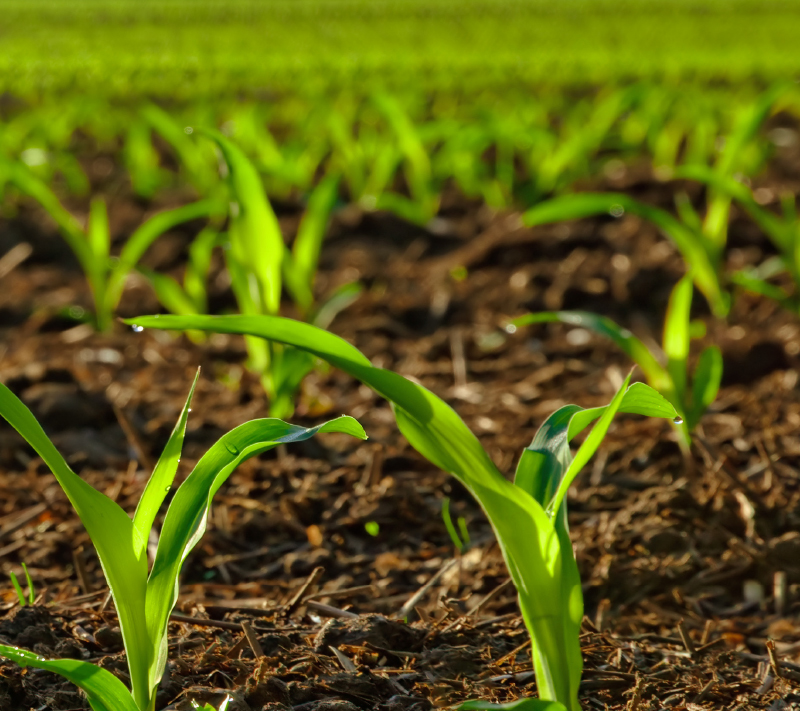The Western Negev is a world leader in the fields of Innovation in the world of security and resilience
The Four Verticals

Climate resilience is a vertical that describes how well people or ecosystems are prepared to bounce back and recover from climate hazard events. The ability of social, economic and ecological systems to deal with a dangerous event, trend or disturbance.
Coping methods include responses to maintain relevant functionality of companies and ecosystems. Efforts to increase climate resilience include a variety of social, economic, technological and political strategies.
Two approaches included in this type of development are climate resilient infrastructure, and smart agriculture, climate resilient water services.
The IPCC assessment report defines climate resilience as follows: “Resilience […] is defined as the ability of social, economic and ecological systems to cope with a hazardous event or trend or disturbance, to respond or reorganize in ways that will maintain their essential function, while maintaining the ability Adaptation, learning and change.”
The three basic capabilities understood by the accepted definition are absorption, adaptation and change, each of which contributes different factors to resilience work efforts. This includes the ability of social-ecological systems to regenerate and develop, and to use disturbances as opportunities for innovation and the development of new pathways that improve the system’s ability to adapt to change.
Building climate resilience is a very comprehensive task that includes an eclectic array of actors and agents: individuals, community organizations, micro-political entities, corporations, governments at the local, state and national levels as well as international organizations. In fact, actions that strengthen climate resilience are those that will improve the adaptive capacity of social, industrial and environmental infrastructures that can mitigate the effects of climate change.
The global “Homeland Security” market (HLS – Homeland Security) is a large and developing global market that responds to a variety of national requirements in the fields of “soft” (paramilitary) defense – for first responders (police, firefighters, medical emergency personnel and more) (in a variety Different verticals and solutions – safe cities, border protection, protection of strategic facilities, supply chains, civil and community defense and security, response to emergency events (demonstrations, natural disasters), cyber attacks, terrorist attacks, agricultural terrorism, settlements, educational institutions, etc.
The uniqueness of the Negev region The Western one is dealing with border protection with different characteristics (Israel, Egypt, Jordan) in defining needs and developing advanced capabilities.
Solutions for these can be dedicated development solutions, security alongside dual solutions that come from compatible and enabling solutions. These are also found in the incubator and in the program and are often supported by other R&D bodies such as the MoSHABT, MPAAT, government ministries such as – the Ministry of National Security, the Ministry of Education, the Ministry of Agriculture.
In 2021, the global HLS market was estimated at approximately 380 billion dollars, and encompassed a variety of technologies and solutions aimed at combating terrorism, border control, cyber security, disaster management, and more. Driven by growing geopolitical uncertainty and the ongoing need for advanced security measures, this industry is expected to reach approximately $480 billion by 2025.
The Technological Center for Resilience and Security in the Western Negev will accompany entrepreneurs at the beginning of their journey in the process of turning ideas into start-up companies. The purpose of the program is to respond to the burning challenges in the fields of resilience by connecting, harnessing and training the participants. During the program, the participating teams receive knowledge and tools from the field of innovation management, and undergo a process to formulate the idea and its initial examination with the center’s team.
The program provides entrepreneurs and start-up companies engaged in technological ventures with advice and support from experienced professionals, with knowledge, experience and connections that will help the venture grow and develop and turn from an idea into a reality. The significant advantage for entrepreneurs is the concentration of the entire package of services under one roof in a professional manner and in a short period of time, in order to speed up the project. Among the services granted to the participants in the program: financial services adapted to the first stages of the venture, including business consulting, training for the preparation of a business plan, preparation of presentations and other means of illustration, assistance in locating financing solutions and grants; Accompanying the technological and marketing feasibility test; guidance and advice in product development processes; Participation in lectures, workshops and meetings with expert groups and more. The envelope of services and assistance that the acceleration program provides to technological entrepreneurship combines knowledge and experience, funding sources, collaborations and business relationships to the force that moves the ventures towards success.
The SouthUp Incubator will operate an accelerator whose goal is to promote ventures from idea to POC/MVP level, focusing on security and HLS, by providing tools and assistance to the entrepreneur in the first development processes, connection with bodies and companies for cooperation for the benefit of pilot and raising seed investment. The value proposition for ventures includes: market research and the precision of the venture, assistance and accompaniment in building a business plan and work plans, Storytelling, pitch and investor presentation, Mentoring as well as locating possible collaborations for the purpose of proving feasibility and connecting with business entities and investors. The activity will include workshops and weekly meetings and tasks to complete between the meetings, work in teams and individual guidance by a professional mentor.


The social and community resilience focuses on improving the ability of communities to meet various challenges and recover from them and is an essential component of social well-being. In 2021, the global social resilience market is estimated at approximately 90 billion dollars, and includes a wide range of solutions to address problems such as public health crises, natural disasters, economic shocks and social upheavals.
With an expected annual growth rate of approximately 7%, the field is expected to reach approximately 130 billion dollars by 2025. The growth in the market highlights the growing recognition of the importance of nurturing cohesive communities, strengthening social support systems, and implementing innovative approaches to building resilience in the face of complex challenges.
The Resilience Center Accelerator – an accelerator for promoting early stage entrepreneurs and technological ventures focusing on the fields of civil resilience, with the aim of developing solutions that have a significant impact on the world in a space that faces a changing reality every day, with uncertainty, economic challenges and a society with extraordinary resilience. In the accelerator, the entrepreneurs will learn the unwritten “laws” of ventures in the new world.
Principles of network thinking, practices of marketing through communities, the worlds of Web 3.0, blockchain and artificial intelligence (AI) and creating value for the potential customers of the enterprise. The duration of the program is 8 months combining face-to-face, hybrid and digital meetings, customized mentoring according to the field of the venture, and the stage in which it is in its development, and a connection to the entrepreneurial-technological ecosystem: investors, continuation programs and potential customers. The projects will benefit from a meticulous and invested plan, which will take place physically in Sderot and leverage the connections to the entire entrepreneurial ecosystem in the Western Negev and in general.
Working hours with leading consultants in their field in the fields relevant to the project and close personalized support throughout the process. The program will end with a Demo Day event in which the ventures in the accelerator will present their mature products in front of private investors, venture capital funds and potential strategic partners, hoping to turn the venture into a growing startup.
The food safety market (Food-Tech (agriculture) Agro-Tech) is currently at the forefront of technological innovation. In 2021, the global agro-tech market was estimated at approximately 13.5 billion dollars and the food-tech market was estimated at 250 billion dollars.
The estimates are that these figures are expected to grow significantly in the coming years at an annual growth rate of over 18% for agro-tech and about 10% for the food-tech field. This rapid growth is driven by demographic processes, primarily the lengthening of life expectancy (estimated that the world’s population will reach 9.7 billion by the year 2050) in combination with the war in Europe and the worsening of the global climate crisis that threatens food security in large parts of the world.
The growing demand for technologies that will lead to accelerated optimization in food production encourages the establishment of ventures in diverse fields whose common guideline is the possibility of growing more food in less space, and/or with reduced consumption of resources on the one hand and alternative food sources on the other.
An acceleration program with an agro-tech focus of the Sharona Partners group in the innovation center in the city of Ofakim will respond to startup companies from the early stages (PRE SEED) and those already in advanced stages, with a product, first customers, etc.
The program which will bring to the city the innovation ecosystem and connection to the international arena of the group, acceleration programs that will germinate about 10-20 startups per year, entrepreneurship and innovation events and more. High-quality offices and co-working spaces, with a scope of 2,400 square meters. In the first phase, an 800-meter complex was established and will later be expanded to the maximum possible. Next to the innovation center, a conference center and community complex, “HUB”, was established, which will make the world of agro-tech accessible to local residents and external interested parties. under construction
The program will give those companies the ability to grow from the Western Negev to the international arena, on the basis of the international network of connections of the Sharona Partners group, which is reflected in partner corporations, venture capital funds, puppies and senior mentors in the local and international industry.
The programs of the Sharona Partners group have been in existence and operating for several years, with hundreds of graduates, success stories and a community of program graduates that supports each other and helps the startups lacking in the various programs.

Submission to Accelerator
Want to stay updated?
Subscribe to the newsletter of
The Technological Center for Security and Resilience
Submission to Mentors
Request for Partnership
Come join us,
Register and a representative will get back to you as soon as possible